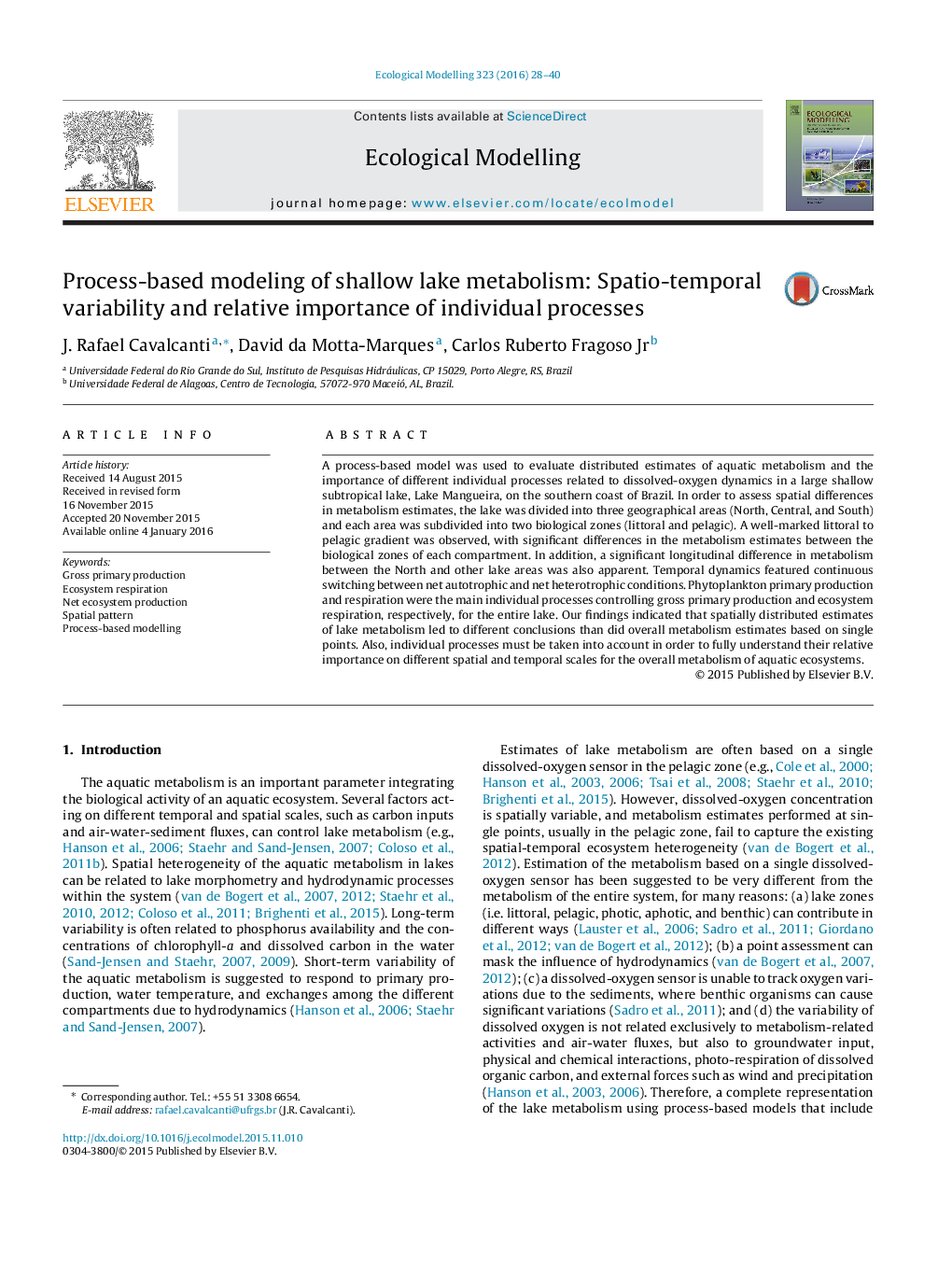| Article ID | Journal | Published Year | Pages | File Type |
|---|---|---|---|---|
| 4375591 | Ecological Modelling | 2016 | 13 Pages |
A process-based model was used to evaluate distributed estimates of aquatic metabolism and the importance of different individual processes related to dissolved-oxygen dynamics in a large shallow subtropical lake, Lake Mangueira, on the southern coast of Brazil. In order to assess spatial differences in metabolism estimates, the lake was divided into three geographical areas (North, Central, and South) and each area was subdivided into two biological zones (littoral and pelagic). A well-marked littoral to pelagic gradient was observed, with significant differences in the metabolism estimates between the biological zones of each compartment. In addition, a significant longitudinal difference in metabolism between the North and other lake areas was also apparent. Temporal dynamics featured continuous switching between net autotrophic and net heterotrophic conditions. Phytoplankton primary production and respiration were the main individual processes controlling gross primary production and ecosystem respiration, respectively, for the entire lake. Our findings indicated that spatially distributed estimates of lake metabolism led to different conclusions than did overall metabolism estimates based on single points. Also, individual processes must be taken into account in order to fully understand their relative importance on different spatial and temporal scales for the overall metabolism of aquatic ecosystems.
